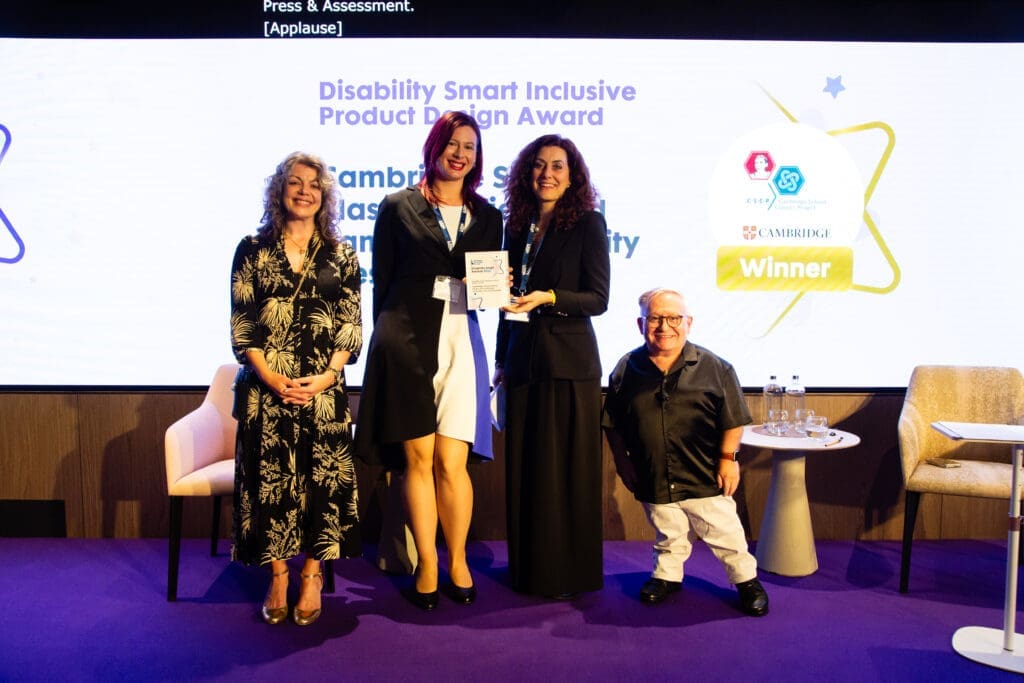Cambridge School Classics Project and Cambridge University Press & Assessment
Cambridge School Classics Project and Cambridge University Press & Assessment won the 2025 Disability Smart Inclusive Product Design Award. Read the case study below.

Cambridge School Classics Project and Cambridge University Press & Assessment: Cambridge Latin Course
About Cambridge School Classics Project and Cambridge University Press & Assessment
Cambridge School Classics Project (CSCP) is a research and development project to help make the classical world accessible to as many students as possible, whatever their age or background, by creating cutting-edge materials and forging strong links with teachers and learners.
Cambridge University Press & Assessment (CUPA) is a department of the University of Cambridge, focusing on two main areas: publishing and assessment. It plays a significant role in global education by providing educational materials and assessment services.
The challenge
The Cambridge Latin Course, a beginner’s Latin course for secondary school students, had not been updated for over 20 years. There had been a growing consensus that it needed updating to reflect modern values in response to concerns from teachers, academics and students about the representation of women, minorities and enslaved people in earlier versions.
The project
CSCP and CUPA created a new edition of the Cambridge Latin Course as a joint venture. The course is the first of its kind to be designed with inclusion and accessibility in mind. Each unit consists of a student book with accompanying digital activities and teacher support.
The new course was updated in consultation with teachers and students. It carefully portrays the diversity of Roman society, amplifying the ‘hidden voices’ of history, including women, minorities, people with disabilities and enslaved people. The content has been written and reviewed by experts and follows the latest best practice in teaching.
Furthermore, the content has been designed to be accessible to all learners. The layout of the printed book – from page width to font choice to colour contrasts – has been carefully designed to maximise accessibility. The digital resources support all learners through uncluttered and intuitive design, comprehensive alt text, and content provided in a variety of formats, including audio, video and interactive activities.
The result
With 93% of Latin students in the UK using the course, the Cambridge Latin Course reaches more learners than any other Latin textbook. The new edition helps to set up learners for success because they are exposed to a more accurate representation of Roman society based on the very latest research.
Going forward
The Cambridge Latin Course spearheaded Cambridge University Press & Assessment’s improvements in accessibility of their digital products. The process raised awareness of accessibility across teams and transformed several of their workflows, such as the creation of eBook files, setting the new standard for their publishing going forward.
If you require this content in a different format, contact enquiries@businessdisabilityforum.org.uk.

